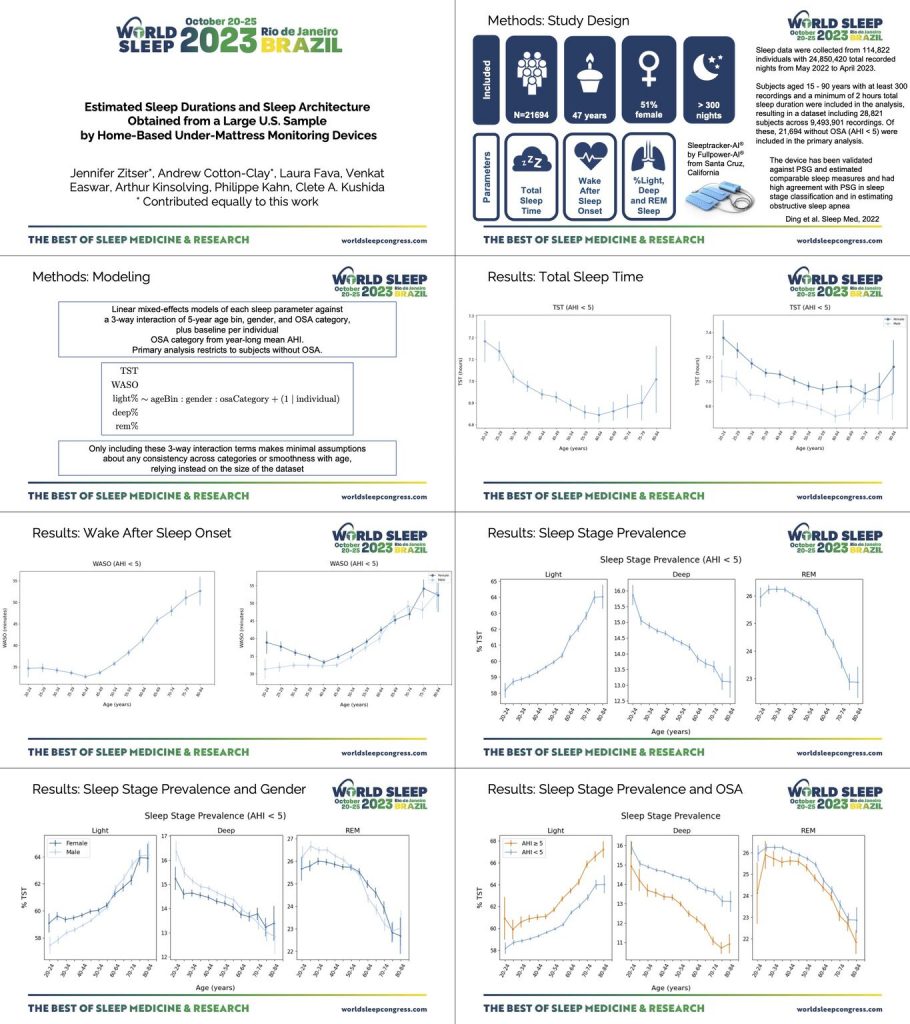Fullpower-AI®, in a very large-scale sleep study, presented new findings at the World Sleep Congress in Brazil. This study shows the first large-scale quantification of declines in deep and REM sleep with age. Practically speaking, this is one of the reasons why maintaining enough deep sleep can be vital for overall health.
With the Sleeptracker-AI® platform, which leverages deep learning and generative AI, and in collaboration with Stanford Sleep Medicine, Fullpower-AI® studied 24,850,420 nights of sleep and presented findings at the World Sleep Congress in Brazil.
While it’s recommended that adults sleep at least seven hours per night, this large-scale study provides new insights into how sleep duration and architecture vary with age. Most people undergo 75-80% of their sleep in NREM (non-REM sleep) and the rest in REM. The study shows that the middle-aged population tends to sleep less, and as people age, there’s a significant decrease in deep sleep consistent across ages. In REM sleep, steep declines begin in late middle age. Notably, those with sleep apnea experience an even more significant decrease in deep sleep regardless of age, emphasizing the impact of sleep apnea on overall health and the need for remediation.
What This All Means for Improved Health
Understanding sleep patterns and architecture is crucial for overall health. These findings emphasize the importance of adequate sleep quality, especially as one ages. The decline in deep sleep, particularly for those with sleep apnea, indicates the need for proper diagnosis and treatment. By addressing these sleep disturbances, individuals can work towards achieving better health and reducing risks associated with sleep deficiencies.
